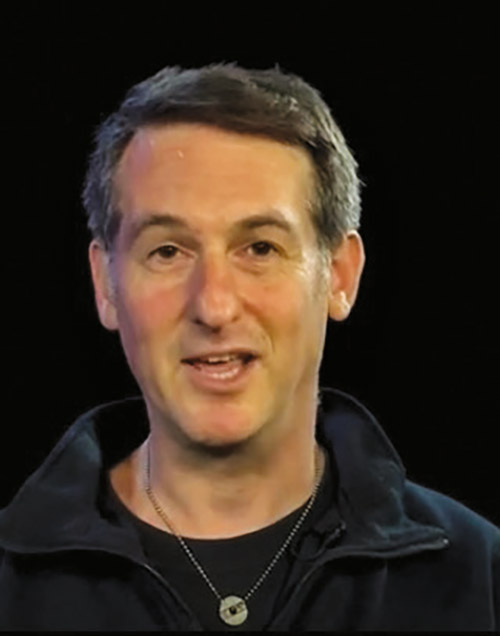

Avi Golden represents a paradigm for how the power of positivity and determination can fuel the strength of the human spirit in dedication to serving others. Serving as a paramedic in New York City at the age of 33 with plans to attend medical school, Avi learned that he needed surgery to repair a mitral-valve defect in his heart. A serious but routine procedure, he suffered a stroke during the surgery, resulting in right-side paralysis and profound aphasia. He remained at Columbia Presbyterian Hospital for two months, followed by two additional months of intensive therapy at the North Shore-Long Island Jewish Health System.
“Aphasia is partial or total loss of the ability to articulate ideas or comprehend spoken or written language, resulting from damage to the brain from injury, tumor, infection or disease. It can range from mild to severe and is an impairment of language in its several manifestations: speech, reading, writing, gestures, facial expression and numbers,” said Kaitlin Brooks, one of Avi’s speech therapists. “A person with aphasia is just as smart after their incident as they were before. In addition, they could also experience apraxia, which involves the inability to move facial muscles and other muscles of speech used to form words.”
Besides participating in traditional physical, occupational and speech therapies, Avi also engaged in numerous non-traditional therapies including acupuncture, massage, Tai Chi, yoga, constraint therapy, aqua-therapy and computer games and used special speech software. Fourteen years later, Avi is now able to walk without assistance or an appliance, although still experiences balance problems and right-side weakness. Needless to say, the condition derailed his bid for medical school. However he continues to volunteer as a paramedic with two New York hospitals.
Avi relates that what frustrates and confounds him the most is the expressive aphasia, more than the other post-stroke residuals. Avi understands what people say and can read well. However, he struggles with both speaking and writing, so that when he has done presentations to EMS personnel, police, firefighters, and medical students or hospital groups here or across the globe, he is joined by a speech pathologist. Asked why EMTs need the training, Avi responded through Phyllis Sterneman, speech pathologist, who assisted us in preparing this feature. “I was an EMT, and the training book only mentioned aphasia in one little sentence.”
Since November 2008, Avi has contributed to the “Aphasia Awareness Training for Emergency Responders Project,” for the National Aphasia Association, and assisted with outreach efforts to police, firefighters and EMTs in seven states and in Israel, by participating in their training sessions, the curriculum and materials used in their training programs.
As Avi explained, “I can understand everything but I can’t get the words out.” He says that having a stroke hasn’t changed who he is, “the same sociable, affable, and compassionate person that he was before his stroke, eager to help others in need and devoted to his job as a paramedic.” However he has expanded his reach on aphasia awareness by presenting around the world and via numerous media outlets, and by being a motivational speaker at colleges and for patients hospitalized at the North Shore—Long Island Jewish Hospital system and other hospitals. “I tell them anything is possible,” he said. After suffering the stroke in 2007, he said he progressed “from wheelchair to cane to independent walking.”
Since 2009, Avi has volunteered at the Adler Aphasia Center, providing educational training for medical students, residents and other healthcare professionals, to inform people about aphasia and its impact on a stroke survivor’s everyday life.
Avi described the benefits of people with aphasia to also avail themselves of the various aphasia support groups. “In a group, it’s important to socialize with others, and have some fun, too. When a speech pathologist leads the group, the person with aphasia doesn’t even know they are working on communication skills when they are in that group. Families need to learn how to help out, also.”
Avi Golden can be reached to arrange for educational training or motivational presentations via phone at 917-656-0819 or email at [email protected] or [email protected], or you can find him on LinkedIn, Twitter or Facebook.
By Ellie Wolf













